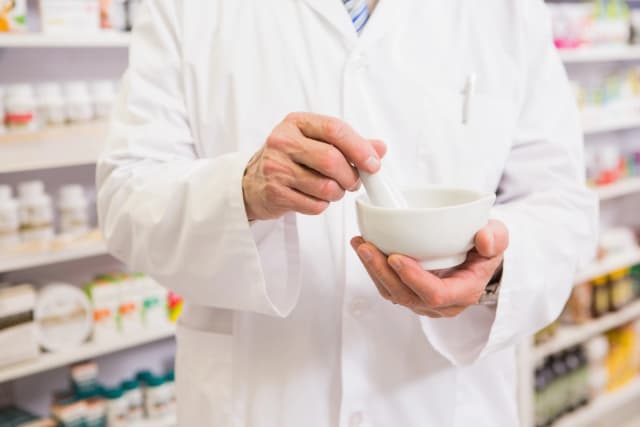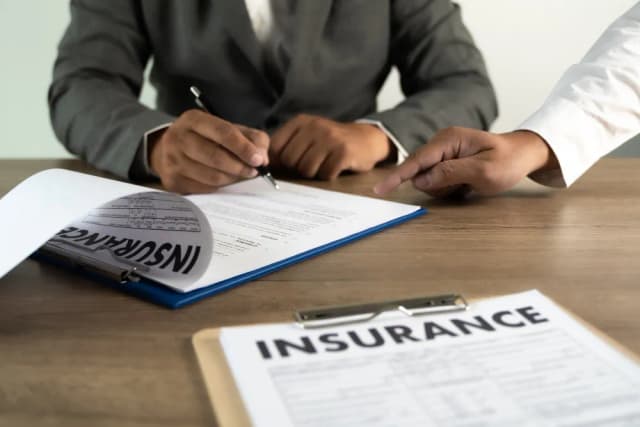High Blood Pressure Medications: Side Effects & Natural Support Tips

High blood pressure (also called hypertension) is one of the most common health conditions in the U.S. It often develops without noticeable symptoms but can increase the risk of heart attack, stroke, and kidney damage over time.
At Farmington Drugs, we want to help you better understand your options. In this guide, we’ll walk you through the most common high blood pressure medications, their possible side effects, and simple lifestyle tips to support your health naturally.
What Is High Blood Pressure?
Blood pressure is the force of your blood pushing against the walls of your arteries. When this pressure is consistently too high, it puts stress on your heart and blood vessels.
-
Normal blood pressure: Less than 120/80 mm Hg
-
High blood pressure: 130/80 mm Hg or higher
Since high blood pressure usually doesn’t cause symptoms, regular checkups are important. If you’ve been diagnosed with hypertension, your doctor may prescribe medication to help lower your numbers.
Common High Blood Pressure Medications
There are several types of blood pressure medicines, each working in a different way. Below are the most commonly prescribed categories.
1. Diuretics (Water Pills)
-
Examples: Hydrochlorothiazide, Chlorthalidone
-
How they work: Help your body get rid of excess salt and water through urine.
-
Possible side effects: Frequent urination, dizziness, low potassium
2. ACE Inhibitors
-
Examples: Lisinopril, Enalapril
-
How they work: Help relax blood vessels by blocking a hormone that causes them to tighten.
-
Possible side effects: Dry cough, high potassium, low blood pressure
3. ARBs (Angiotensin II Receptor Blockers)
-
Examples: Losartan, Valsartan
-
How they work: Similar to ACE inhibitors, but usually without the dry cough.
-
Possible side effects: Dizziness, tiredness, high potassium
4. Calcium Channel Blockers
-
Examples: Amlodipine, Diltiazem
-
How they work: Relax the muscles of your blood vessels and sometimes slow your heart rate.
-
Possible side effects: Swelling in the legs, constipation, flushing
5. Beta Blockers
-
Examples: Metoprolol, Atenolol
-
How they work: Slow down the heart rate and reduce how hard the heart has to work.
-
Possible side effects: Fatigue, cold hands or feet, depression
6. Combination Medications
Sometimes, doctors prescribe two medications in one pill to make it easier to manage your treatment plan.
Tips for Managing Side Effects
Side effects are common when starting a new medication, but many improve over time. Here are a few tips:
-
Take your medication exactly as directed—don’t skip doses.
-
Report any new or worsening symptoms to your doctor or pharmacist.
-
Stay hydrated and maintain a balanced diet, especially if you're on a diuretic.
-
Avoid potassium supplements unless your doctor says otherwise.
At Farmington Drugs, our pharmacists are here to answer your questions and help manage side effects safely.
Natural Ways to Support Healthy Blood Pressure
While medications are often necessary, certain lifestyle habits can also support healthy blood pressure levels. Talk to your doctor before making any changes.
1. Eat a Heart-Healthy Diet
-
Focus on: Fruits, vegetables, whole grains, lean proteins
-
Reduce: Salt, saturated fats, and processed foods
-
Try the DASH diet: Designed specifically for blood pressure support
2. Exercise Regularly
-
Aim for at least 30 minutes of moderate activity, like walking or biking, most days.
-
Staying active can help reduce stress and strengthen your heart.
3. Manage Stress
-
Practice deep breathing, meditation, or light stretching
-
Even 10 minutes a day of relaxation can make a difference
4. Limit Alcohol and Quit Smoking
-
Alcohol: No more than one drink per day for women, two for men
-
Tobacco: Quitting can improve your blood pressure and overall heart health
5. Monitor Your Blood Pressure at Home
-
Use an approved home blood pressure monitor
-
Keep a log and share results with your doctor
Our team at Farmington Drugs can help you choose the right monitor and show you how to use it correctly.
When to Call Your Pharmacist or Doctor
You should always contact your healthcare provider if you notice:
-
Very low blood pressure (lightheadedness, fainting)
-
Swelling in the face, lips, or throat (could be an allergic reaction)
-
Chest pain or shortness of breath
Never stop taking your medication without talking to your doctor first, even if you feel better.
Final Thoughts
High blood pressure is manageable, especially with the right combination of medication and healthy habits. Whether you’re newly diagnosed or adjusting your treatment plan, it’s important to stay informed and ask questions.
At Farmington Drugs, we’re here to support you every step of the way. Stop by or give us a call if you need help with your prescriptions, understanding side effects, or choosing products that support heart health.





